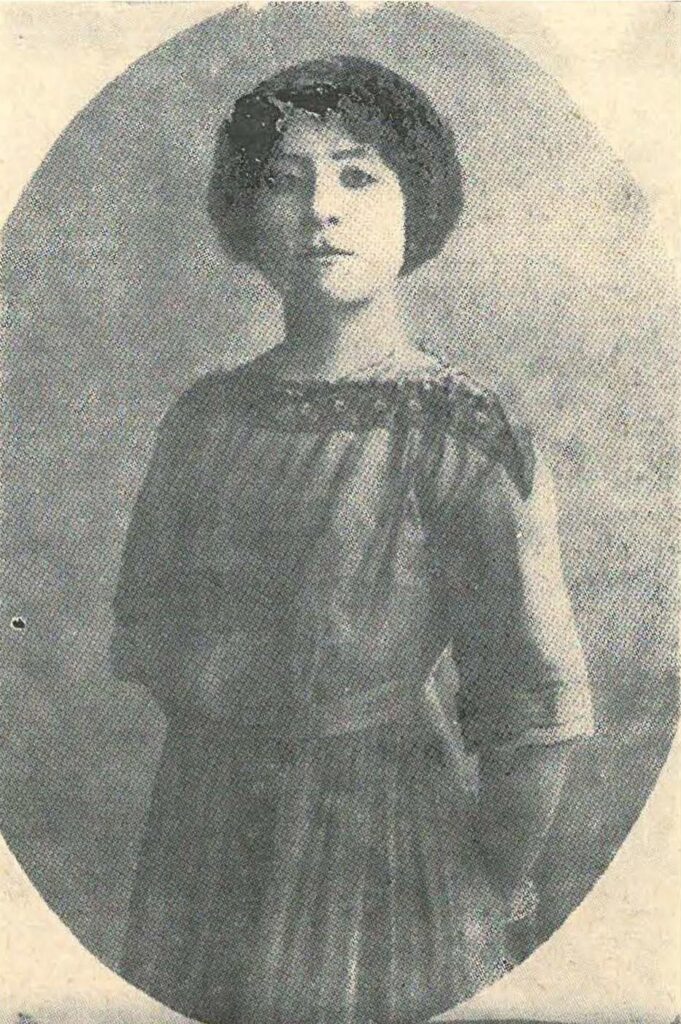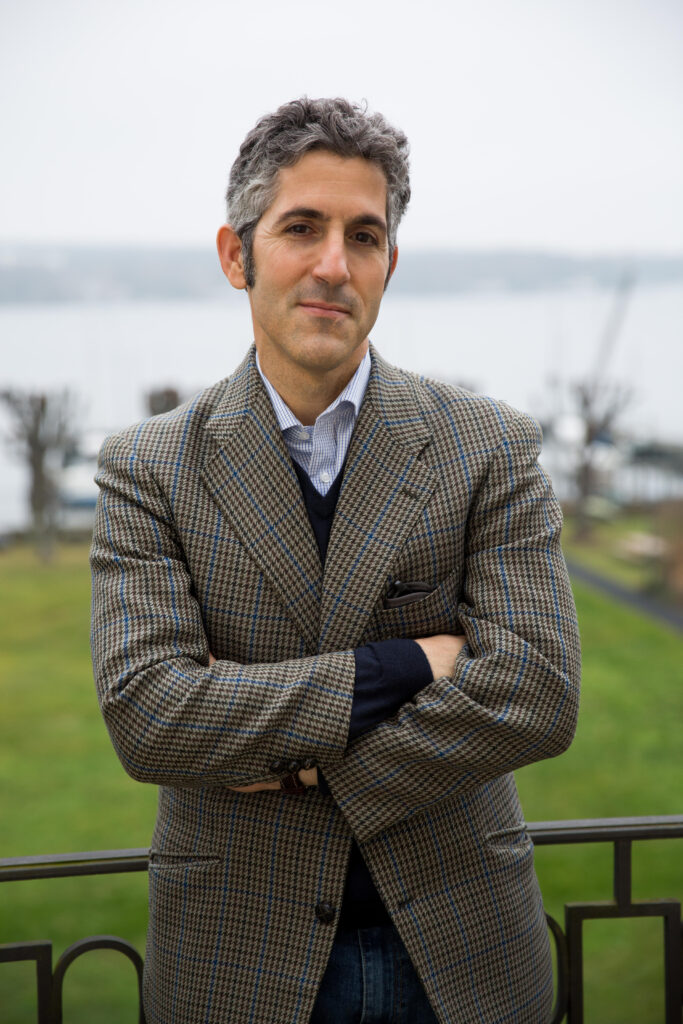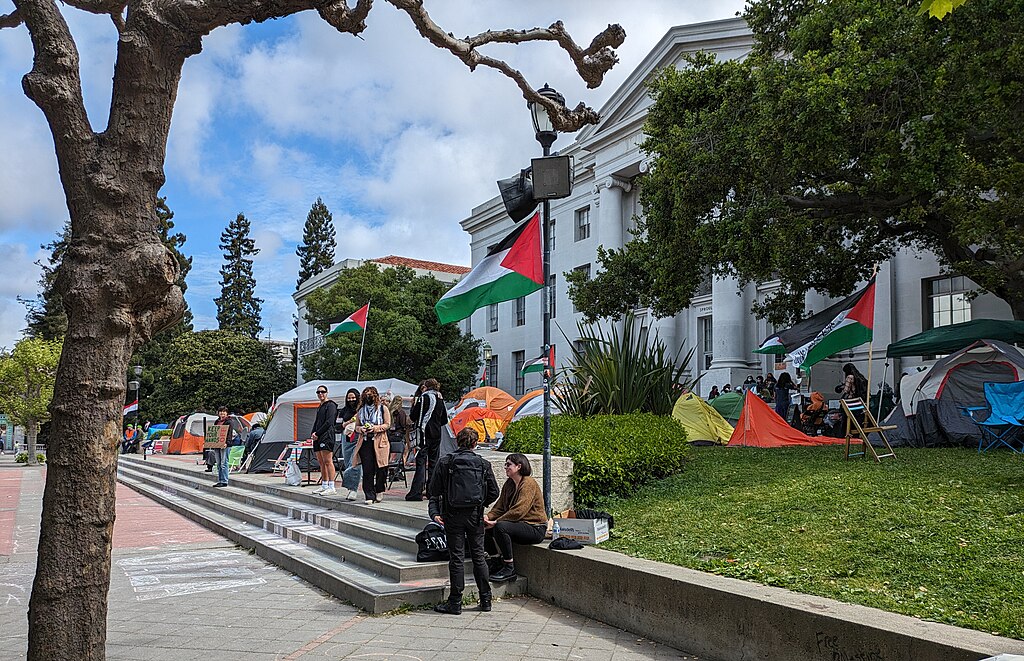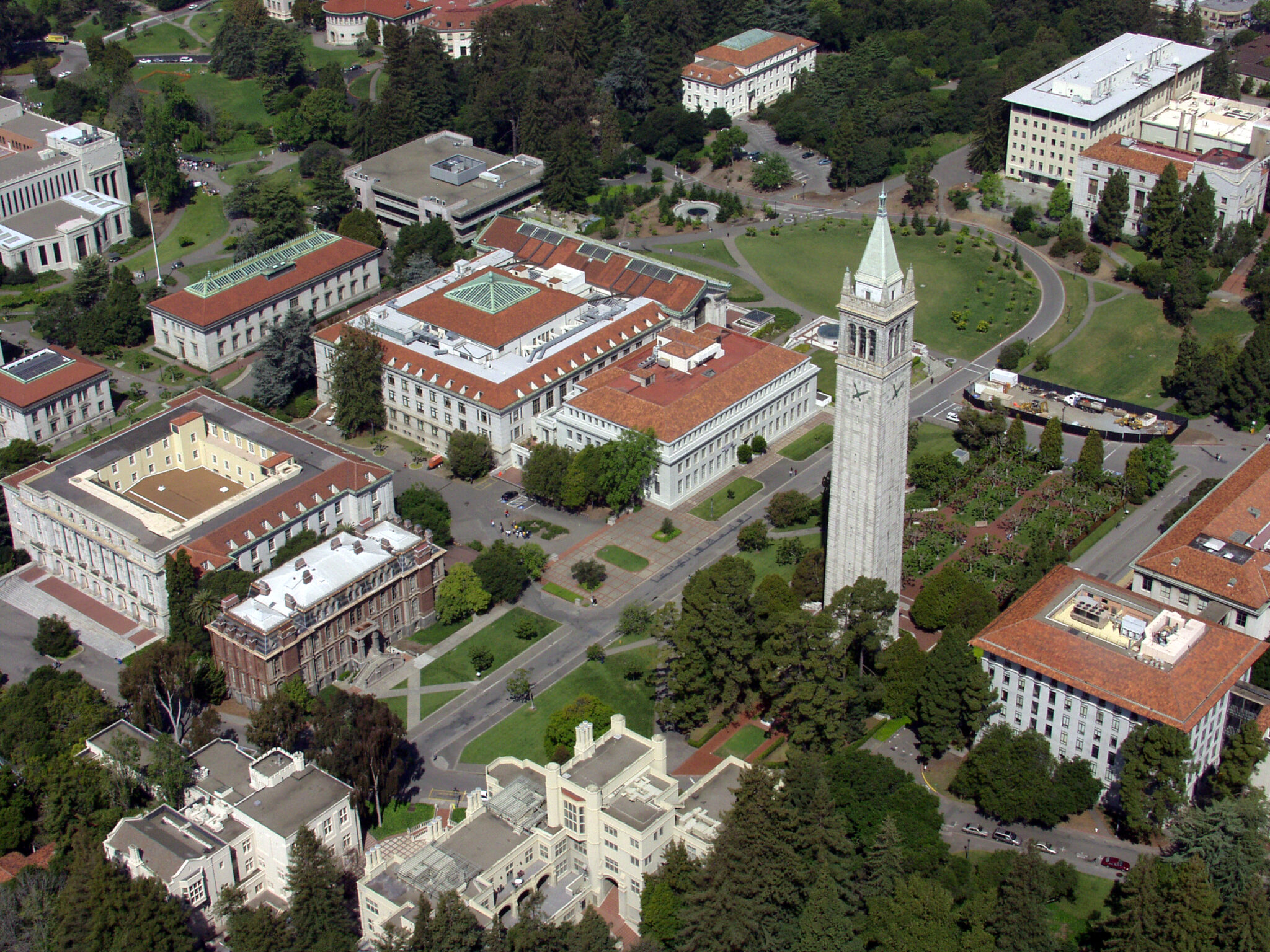When Sara*, a third-year business and psychology student at UC Berkeley, took an undergraduate history class called “Palestine and the Palestinians: A Modern History” last year, she wasn’t expecting much of the curriculum to surprise her.
Her father grew up in Palestine, and moved to the U.S. in 1987 to finish his studies when Birzeit University, the top college in Palestine, was closed during the first Intifada. Sara grew up in Southern California, steeped in Palestinian culture, and had traveled to visit her aunts, uncles, and cousins in their West Bank village several times as a kid. Since arriving at Berkeley, she’s participated in protests, teach-ins and other events organized by the student group Bears For Palestine.
And yet: “It was a life-changing class,” says Sara of the course, which was taught by Professor Ussama Makdisi. “Learning from somebody who finally was centering the Palestinian experience,” she says, felt unique—something she’d never experienced in an academic setting. In the U.S., she’s found many modern histories of the region start with the Nakba, the 1948 war that displaced some 700,000 Palestinians. But Makdisi explored the context of that exodus, from the 1917 Balfour Declaration onward, “through a settler-colonialist lens,” she says, “which is how it should be analyzed.”
Next fall, many more students will have the chance to learn about Palestinian history and culture, as Berkeley launches a groundbreaking program and chair in Arab and Palestinian studies. The program, announced in September, figures to be both the first of its kind at a public university in the U.S., and the first Palestinian studies program supported by an endowment; it was made possible by a $3.25 million gift from anonymous donors.

Makdisi—a preeminent expert on modern Arab history who arrived at UC Berkeley in 2022 after 25 years at Rice University—will become the first May Ziadeh Chair in Palestinian and Arab studies, a position named for a seminal Palestinian-Lebanese poet.
While the exact curriculum is currently under development, Makdisi says he’s taking a collaborative approach, seeking input from scholars across the U.S. as well as overseas. The program’s inaugural conference in November featured a keynote speech by feminist scholar Nadera Shalhoub-Kevorkian.
For now, Makdisi knows courses will be designed to meet what he calls an unprecedented surge of curiosity about Palestine since Oct. 7, 2023, when Hamas launched an attack on Israel that killed some 1200 people and took more than 250 hostages captive. Two weeks later, the Israeli military invaded Gaza, launching a massive and ongoing bombing campaign. As of Nov. 21, 2024, Palestinian officials said the death toll in the Gaza Strip had surpassed 44,000.
A key aspect to the dehumanization of Palestinians has been their dehistoricization.
Ussama Makdisi
But while the magnitude of the current war certainly contributed to student interest in Palestine over the last year, Makdisi says the curiosity goes deeper.
“What’s happened more recently is there’s been interest in actual Palestinian history and humanity and society on their own terms, as opposed to simply seeing it through the prism of conflict,” says the professor, reflecting on his nearly 30 years of teaching. “There’s also an extraordinary growth in interest around how the struggle for justice in and around Palestine intersects with so many other causes and issues.”

That rings true for Eman Akilah, a Palestinian-American senior at Berkeley who grew up in the South Bay. She’ll be graduating with a degree in public health in the spring, and plans to pursue work with refugee and immigrant families. Over the past year, it’s been difficult to “have to go about my normal life as a student,” she says—especially as the topic of Palestine began to feel “like an elephant in the room” in her classes.
“Public health is inherently political,” she says. “And the crisis in Gaza is very much a public health one. There’s this reemergence of disease, there’s no clean water, no food. It’s been jarring, to say the least, to have it not be talked about.”
While Palestinian history has long been a topic of student-run DeCal courses, watching the university deem it worthy of an official academic program and grant it resources is exciting and gratifying, says Akilah—even if, as a graduating senior, she won’t get to take the classes herself.
A new mosaic from shards of the past
As of November 2024, there are only two other similar programs in the country, at Columbia and Brown universities, and Makdisi said he’s been speaking with scholars from both. But Berkeley’s has a distinct lineage in terms of programs shaped by protest: The first ethnic studies departments in the U.S. were established in 1968 and 1969 at San Francisco State University and UC Berkeley, respectively, following months of student strikes.
“Challenging histories call for creative, broad-ranging scholarship,” wrote History Department Chair Cathryn Carson in an email, when asked what it meant for one of the first Palestinian Studies programs in the nation to launch at Berkeley. “The Program in Palestinian and Arab Studies creates a living opportunity to piece together a new mosaic from the shards of the past.”
The initiative, she added, was in line with the school’s “long tradition of inventive research, teaching, and interdisciplinary dialogue.”
Both Berkeley’s public status and the program’s endowment may have implications for what types of courses, events and speakers Makdisi and other faculty are able to include in the new program: Students and speech on campus at public universities have historically enjoyed broader First Amendment protections than those at private institutions.
“That has been the case until now,” says Makdisi. “Let’s see what happens in the future.”
That doesn’t mean the program will unfold without controversy. Berkeley has been at the center of free speech debates since the 1960s, and over the past decade, the First Amendment’s limits on campus have been tested often by discussion about Israel and Palestine. In 2022, student groups including Berkeley Law Students for Justice in Palestine approved a bylaw that banned speakers who supported Zionism, drawing criticism from UC Berkeley Law Dean Erwin Chemerinsky and UC Board of Regents Chair Richard Leib and prompting a federal civil rights investigation. And in February, an on-campus event featuring an Israeli speaker was canceled after pro-Palestinian protestors surrounded the building and broke down doors to gain entry.

When it comes to any protests that may arise from the program, Makdisi noted that he was encouraged by the university’s handling of the pro-Palestinian encampment on campus at Berkeley last spring.
“Those were, remember, ethical protests against genocide,” says Makdisi, “that brought together students of different faiths, different backgrounds, all expressing horror at the sheer obliteration of life in Gaza … including many, many, many Jewish students who support justice for Palestine, which I think really needs to be highlighted.”
In May, following weeks in which Columbia University and UCLA made headlines for arresting students and even professors at pro-Palestine encampments, Berkeley’s administration instead negotiated with protestors. The camp was ultimately dismantled by protesters after Chancellor Christ said she would call for a ceasefire. A subcommittee of the UC Berkeley Foundation also launched a task force to assess the university’s investments in certain industries, like weapons manufacturing, that support Israel’s war effort in Gaza.
As of November, no contracts have been severed. The University of California Office of the President and Christ have made clear that “divestment from companies on the basis of whether or not they do business with or in Israel is not supported.”
Asked if he anticipated any pushback from students or the administration, Makdisi says that “the idea of anyone objecting to the teaching of Palestinian history isn’t acceptable. It shouldn’t be acceptable.”
“The whole point of this program is to insist that Palestinian history and society … are things that we should freely study, and learn about without fear, without intimidation, without censorship,” he says.
“A key aspect to the dehumanization of Palestinians has been their dehistoricization. And the more you know about any people, the more you study their history, their society, their culture and humanity, the more you appreciate them as part of us all. That’s what we’re trying to do.”
***
*Sara is a pseudonym used at the subject’s request to protect their privacy
Emma Silvers is a San Francisco-based journalist who grew up in Albany (the one north of Berkeley).






















